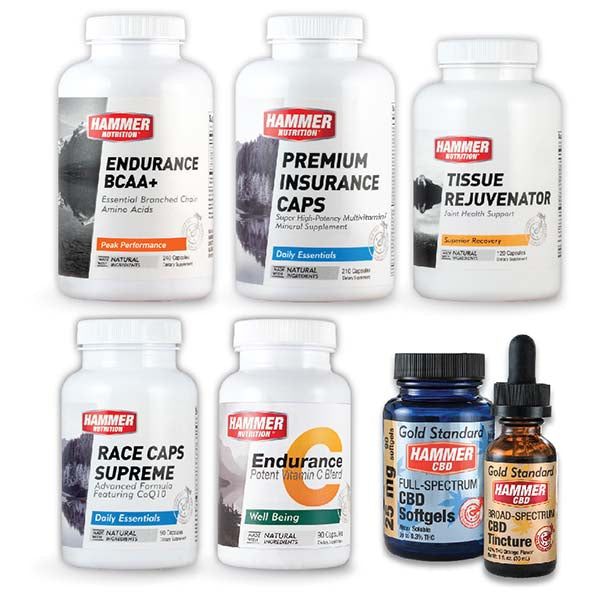More than meets the eye
BY STEVE BORN
Lutein, like its better-known family member beta-carotene, is classified as a carotenoid. This natural compound is found in many fruits and vegetables, particularly dark green, leafy vegetables such as kale and spinach.
While beta-carotene is perhaps the better-known eye-specific nutrient, lutein - one of the components in AO Booster - is arguably the most potent nutrient for protecting one's vision. Research has shown that lutein helps reduce the risk of two of the leading causes of blindness: age-related macular degeneration and cataracts. [1] It provides structural support (i.e. enhanced density) for the macula pigment and protects the eye from oxidative stress.
Just as impressive, research has shown that lutein may improve vision in those who already have macular degeneration. Study subjects receiving 10 mg of lutein daily had increased macular pigment density, along with improvements in a number of areas of visual function. [2]
Additional lutein benefits
A massive meta-analysis showed that people with higher lutein intakes and/or greater blood concentrations of lutein had a decreased risk of coronary heart disease and stroke, and lower incidences of metabolic syndrome that can lead to diabetes and heart disease. [3] Note: Metabolic syndrome is a group of conditions: high blood pressure, high blood sugar, unhealthy cholesterol levels, and excess abdominal fat. According to the American Heart Association, 47 million Americans - one in every six - have metabolic syndrome.
Compared to people in the group whose lutein intake or blood concentration of lutein was in the lowest third, those in the top third were shown to have:
- A 12% reduction in the risk of having coronary heart disease (a.k.a. coronary artery disease), defined as a narrowing of the blood vessels that supply blood and oxygen to the heart
- An 18% decreased risk of having a stroke
- A 25% lower risk of having metabolic syndrome
Researchers believe that lutein provides these wide-ranging benefits because of its powerful ability to protect tissues from inflammation and oxidative damage, two main factors in cardiovascular and metabolic diseases. There is promising research for other areas of the health as well:
- Lutein is the primary carotenoid in the brain, so it's not surprising that numerous research has shown that lutein supports optimal brain functioning and cognition. [4]
- Research suggests that lutein, along with another carotenoid, zeaxanthin (found in the same food sources as lutein) and vitamin E may help improve lung function. [5] Note: All eight family members of vitamin E are in AO Booster.
- Lutein aids in protecting the skin from UV and free radical damage, it helps reduce inflammation and redness in the skin, and may even be a powerful ally for the prevention of skin cancer. [6]
- Animal research indicates that lutein in combination with DHA (found in EndurOmega) is beneficial in helping control blood sugar and potentially lowering the risk for diabetes. [7]
Why you need to supplement
The body can't make lutein; it must be obtained via the diet or supplementation. The average estimated intake of lutein from the diet, however, is a mere 2 mg per day. Suggested daily doses for lutein range from 6-20 mg. AO Booster boasts 10 mg of lutein per capsule.
Summary
If lutein solely supported healthy vision, it would still be a very valuable addition to your diet and supplementation program. Lutein's advantages extend far beyond that, however. It has extraordinary antioxidant and anti-inflammatory properties, making it an excellent post-exercise supplement, and it offers many other powerful benefits for comprehensive health.
REFERENCES:
[1] Scripsema NK, Hu DN, Rosen RB. Lutein, zeaxanthin, and meso-zeaxanthin in the clinical management of eye disease. J Ophthalmol. 2015;2015:865179.
[2] Richer S, Stiles W, Statkute L, et al. Double-masked, placebo-controlled, ran- domized trial of lutein and antioxidant supplementation in the intervention of atrophic age-related macular degeneration: the Veterans LAST study (Lutein Antioxidant Supplement Trial). Optometry. 2004 Apr;75(4):216-30.
[3] Leermakers ET, Darweesh SK, Baena CP, et al. The effects of lutein on cardiometabolic health across the life course: a systematic review and meta-analysis. Am J Clin Nutr. 2016;103(2):481-94.
[4] https://www.frontiersin.org/articles/10.3389/fnagi.2017.00183/full
[5] American Journal of Epidemiology 2002 Mar 1;155(5):463-71
[6] https://www.ncbi.nlm.nih.gov/pmc/articles/PMC3257702/
[7] https://www.ncbi.nlm.nih.gov/pubmed/19958109









